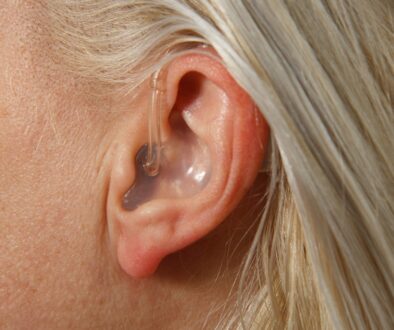Are “Sleigh Bells” Ringing in Your Ears? Solutions for Tinnitus
There are times over the winter holidays when you expect to hear ringing: jingle bells on “Santa’s “reindeer, hand bell choirs preforming traditional carols, or the Salvation Army’s bell ringers. However, there’s an extreme difference between the ringing of outside noises and the constant, annoying buzz or high-pitched squeal associated with tinnitus. For millions of Americans, tinnitus has a devastating effect on the quality of their lives.
WHAT IS TINNITUS?
In short, tinnitus is a “ringing in the ears” or similar head noises without an external source. This means that the ringing isn’t coming from something in the environment, but rather from inside the ear. It may be a squeal or a low roar, and persistent tinnitus can last for more than six months. One in five Americans has tinnitus to the extent that it interferes with everyday life.
WHAT DOES IT SOUND LIKE?
It could sound like a low, constant roar, a high-pitched screech, static or a tea kettle whistle. The American Tinnitus Association has some samples of the variety of sounds experienced by those with tinnitus on their website. (If you wish to listen to these sounds, please ensure that your computer’s volume is at a safe level.)
Tinnitus may also be more troublesome at night because, during the day, external sounds such as traffic or background noise may “distract” the brain from the ringing. Therefore, when background sounds are minimal—such as when trying to sleep—the tinnitus may be more bothersome. Sometimes, use of a sound machine at night may help. If tinnitus is interfering with your ability to sleep, speak with your ENT.
DIFFERENT TYPES OF TINNITUS
There are two types of tinnitus: subjective and objective. Subjective tinnitus is the most common. In fact, more than 99 percent of all cases fall into this category. With subjective tinnitus, the ringing or head noise is only heard by the patient— not to outsiders. Objective tinnitus is rare, comprising less than 1 percent of the total tinnitus cases. In this version of the disorder, the head or ear noises are audible to others in addition to the patient. Often these sounds are from the body’s circulatory or musculo-skeletal systems.
WHAT CAUSES TINNITUS?
There are several conditions that cause tinnitus, the most common of which is hearing loss. Other causes include:
- Damage to the tiny hair cells in the inner ear
- Exposure to loud noise
- Side effects of certain medications
- Excessive wax, particularly if the wax touches the ear drum
- Middle ear infections
- Hardening of the tiny bones in the middle ear, called otosclerosis (although this is rare.)
- Structural problems with the outer ear
WHO IS AT A HIGH RISK FOR DEVELOPING TINNITUS?
Anyone can develop tinnitus at any age, but there are certain groups that appear to be at a higher risk of developing the disorder. These groups include:
- Senior citizens: Roughly 30 percent experience tinnitus symptoms.
- Active military personnel: Exposure to gunfire and loud machinery puts this group at risk.
- Employees in loud work environments: This includes construction workers, miners, farmers and drivers.
- Musicians: Those who regularly perform (as well as those who regularly listen) are at higher risk.
- Hunters: Those who regularly hunt for recreation and are exposed to loud gunfire noises may develop tinnitus.
HOW IS TINNITUS TREATED?
First, realize that only an ENT physician can make a diagnosis of tinnitus. These physicians are specially trained to treat this condition, along with other diseases of the inner, middle and outer ear. There is no “cure” for tinnitus, but there are several things that can help patients cope with the disorder. If the tinnitus has lasted for less than six months, most patients gradually improve and do not have persistent symptoms.
Treatment centers on the exact cause of the tinnitus, such as earwax removal, treatment of arthritis in the jaw joint or draining fluid from the middle ear. Hearing aids, ear-level maskers, and even sound therapies implementing “white noise” can also help manage the symptoms. If tinnitus is chronic, your ENT can guide you with effective coping mechanizes to minimize the disorder’s effect on your life.
Be aware: there are several advertisements for tinnitus “cures” on the internet and television, touting everything from herbal remedies to vitamin supplements. However, there is no scientific evidence to show that these methods are effective.
Tinnitus is a serious, bothersome, and often chronic condition. While there is no cure, there are several treatments available that can help patients get their lives back. ENTs are in a unique position to address all of these available methods and tailor a treatment plan for each individual patient.




